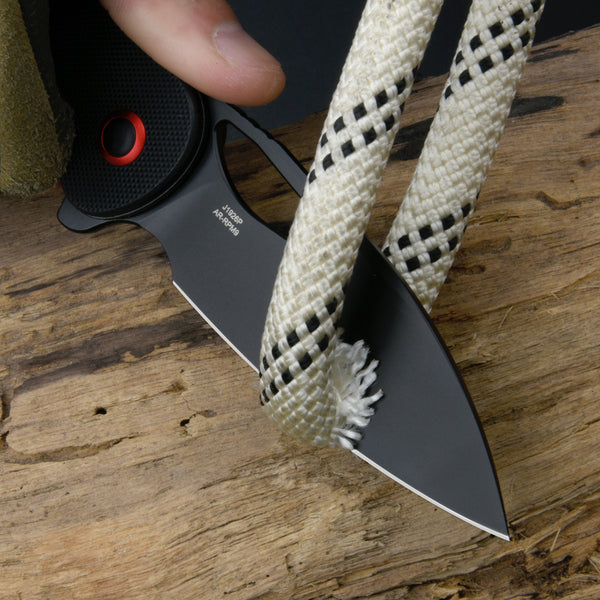When it comes to cutting tools, the Wharncliffe blade has proven to be a versatile and valuable asset in a wide range of industries. Its unique design and functionality make it an indispensable tool for various applications, from woodworking to medical surgery. In this article, we will delve into the diverse uses of Wharncliffe blades and explore their impact on different sectors.

The Anatomy of a Wharncliffe Blade
Before we explore the applications of Wharncliffe blades, it's essential to understand their anatomy. A Wharncliffe blade is characterized by a straight edge that tapers to a point, creating a sharp and precise cutting surface. Unlike other blade designs, the Wharncliffe blade has a straight spine that extends to the tip, providing excellent control and stability during cutting tasks. This unique shape sets it apart from traditional blades and makes it well-suited for a variety of purposes.
Woodworking and Carpentry
One of the primary industries that benefit from the versatility of Wharncliffe blades is woodworking and carpentry. The straight edge of the blade allows for clean and accurate cuts, making it ideal for shaping and carving wood. Whether it's crafting intricate designs or trimming precise angles, the Wharncliffe blade excels in delivering the precision and control that woodworkers require. Additionally, its straight spine provides stability when making long, straight cuts, enhancing the overall efficiency of woodworking tasks.
Medical and Surgical Applications
Another industry where the versatility of Wharncliffe blades shines is in the field of medicine. Surgical knives featuring Wharncliffe blades are used in various procedures, thanks to their exceptional precision and sharpness. From delicate incisions to intricate dissections, these blades offer surgeons the accuracy and control necessary for performing complex surgeries. The straight edge of the blade enables surgeons to make clean cuts with minimal tissue damage, ultimately improving patient outcomes.
Industrial and Manufacturing
In the industrial and manufacturing sector, Wharncliffe blades play a vital role in cutting and shaping various materials. Whether it's cutting textiles, plastic, or rubber, the straight edge of the blade ensures a smooth and uniform cut, enhancing the quality of the end product. Additionally, the stability provided by the straight spine of the blade makes it an ideal tool for precision cutting in assembly and fabrication processes. The versatility of Wharncliffe blades in industrial settings contributes to increased efficiency and accuracy in manufacturing operations.
Outdoor and Tactical Applications
Beyond traditional industries, Wharncliffe blades have found applications in outdoor and tactical settings. The straight edge and sharp point make them well-suited for tasks such as rope cutting, box opening, and general utility cutting. Their reliability and precision make them a popular choice for outdoor enthusiasts, survivalists, and military personnel who require a dependable cutting tool in various scenarios.
In conclusion, the versatility of wharncliffe blades spans across a wide range of industries, from woodworking to medical surgery, and from manufacturing to outdoor activities. Their unique design and functionality make them indispensable tools for achieving precision, control, and efficiency in diverse applications. As industries continue to evolve, the adaptability of Wharncliffe blades will undoubtedly ensure their continued relevance and importance in various sectors.





